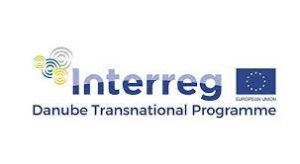Date/time
Date(s) - 01/01/2024 - 31/12/2025
All day
Project type
Selected participants
In 2021, the European Union (EU) faced a concerning issue with a high percentage of young individuals aged 15 to 29 falling into the category of Not in Education, Employment, or Training (NEET). Specifically, 13.1% of young people were classified as NEET, which raised significant alarms, particularly in rural regions. This situation not only negatively impacted the well-being and living standards of NEETs but also posed threats to the social and economic sustainability of these areas. To address this pressing challenge, the EU set a target to reduce the NEET rate to below 9% by 2030 and recognized the revitalization of rural regions as a shared European vision. In response, the Back on Track project was developed as a means to tackle these challenges and contribute to achieving these common goals.
A crucial aspect of this effort is to reach, motivate and effectively integrate inactive young people who are disengaged and marginalized. Back on Track aims to understand the characteristics of these young people and explore strategies to engage those who have been left behind. Consequently, the overall objective of the project is to establish sustainable and effective methods of engaging with rural NEETs, facilitating their social and educational integration, providing targeted and personalized support to pursue their individual aspirations, and enhancing their basic skills, life skills, and mental well-being.
The project places a strong emphasis on the digital inclusion of rural NEETs and strives to bridge the gap by providing access to urban benefits, such as extensive education and employment opportunities, through virtual means. By increasing the virtual mobility of rural NEETs, their integration can be significantly improved, the attractiveness of rural areas can be enhanced, and the EU’s overarching goal of transforming brain drain into brain gain can be advanced.
To achieve its objectives, the project will establish a transnational cross-sectoral stakeholder network to ensure the long-term sustainability of its outcomes. It will also develop a strategy for successful outreach to rural NEETs, implement a mentoring programme and create an innovative digital training model tailored to the identified needs of rural NEETs. Through these efforts, the project aims to provide a pathway and new prospects for individual development, training and career orientation
without the need to leave rural areas.
In summary, the Back on Track project represents a concerted EU effort to address the pressing issue of rural NEETs. By understanding the characteristics of these young people, providing targeted support and leveraging digital inclusion, the project aims to improve their integration, enhance the attractiveness of rural areas and contribute to the EU’s goal of reducing the NEET rate while revitalising rural areas.
Project is co-funded by the European Union.



